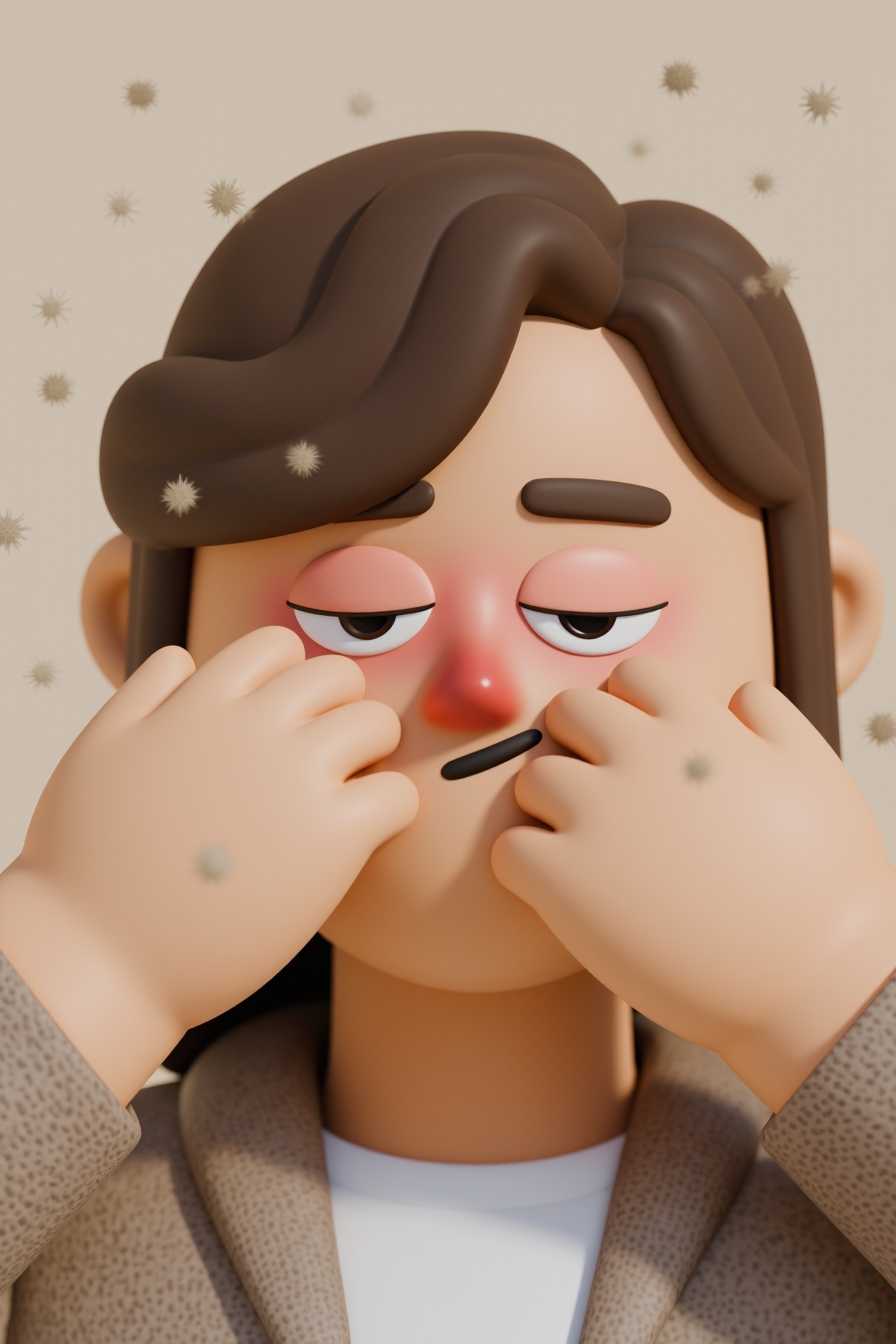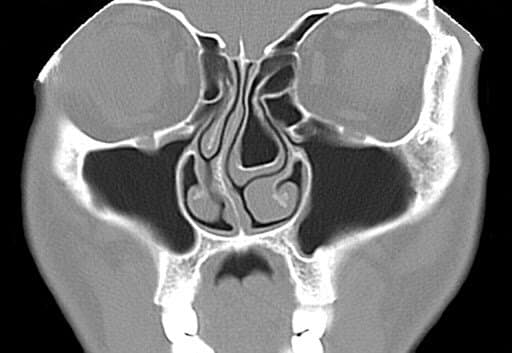Corticosteroid Nasal Sprays: Friend or Foe?
If you have ever struggled with nasal congestion, allergies, or a pesky sinus infection, odds are you’ve reached for a nasal spray at some point. Over the counter or prescribed, nasal sprays are staples in medicine cabinets around the world, promising relief when breathing through your nose becomes a distant memory. Among the host of options, corticosteroid nasal sprays have gained fame for their ability to effectively reduce irritating symptoms, although they may take several days to reach full effectiveness. In this article, we’ll weigh the benefits and risks of corticosteroid nasal sprays, explore emerging drug-free alternatives, and share tips to keep your nose in tip-top shape for the long haul.
Understanding Nasal Sprays and Their Uses
The term “nasal spray” actually covers a broad range of products, each designed to address different nasal issues. These can range from simple saline solutions that moisturize to medicated sprays that reduce inflammation or shrink swollen blood vessels. More recently, drug-free sprays designed to physically trap and neutralize viruses or bacteria before they can cause infection have entered the market, offering a fresh approach to nasal health.
Nasal sprays serve a variety of purposes: managing allergy symptoms, soothing congestion from a cold, clearing out excess mucus after exposure to pollen or irritants, or even helping to prevent the spread of infection during cold and flu season (WebMD). Their ability to deliver medication or relief directly into the nasal passages makes them uniquely effective. For many millions, nasal sprays are essential daily tools that restore comfort and clear breathing.
How Nasal Sprays Work
The exact action of a nasal spray depends largely on its active ingredients:
- Corticosteroid nasal sprays reduce inflammation inside the nasal passages. This helps tackle the root cause of swelling, stuffiness, and that familiar pressure or fullness in the sinuses.
- Saline and gel-based sprays work differently, mechanically flushing out pollen, dust, dried mucus, and other irritants, while also keeping nasal tissues moist and less prone to inflammation.
- Drug-free sprays, rooted in exciting new research from Harvard Medical School (Harvard) and The Lancet Respiratory Medicine (Lancet), rely on forming a physical barrier inside the nose. This layer catches viruses and bacteria before they can latch on and cause illness, potentially lowering the risk of infections.
Think of these drug-free sprays like a microscopic mask lining your nasal passages—trapping pathogens as air passes through. This mechanical protection aims more at prevention than symptom relief, distinguishing them from traditional sprays.
Symptoms and Conditions Treated by Nasal Sprays
Nasal sprays are especially popular for people battling:
- Nasal congestion, often from the common cold or sinus infections (sinusitis)
- Seasonal allergies and hay fever, triggered by pollen or mold
- Sneezing, runny nose, or postnasal drip—the annoying drip down the throat that follows allergies or infections
- Sinus pressure, headache, or a feeling of fullness in the face
For allergy sufferers—whether struggling through spring pollen or enduring dusty autumn leaves—a corticosteroid nasal spray can be life-changing. However, use should be guided by a healthcare provider to ensure safety and proper treatment. Moreover, these sprays serve as critical tools in managing chronic rhinosinusitis, a long-lasting inflammation of the sinuses that can persist for months without proper treatment.
When deciding whether to reach for a corticosteroid nasal spray, consider the severity and frequency of your symptoms. If you experience ongoing stuffiness or severe allergies that interfere with daily life, corticosteroids, often prescribed by a doctor, can be highly effective. For milder or short-lived symptoms, saline sprays—which are safe for all ages and can be used frequently—or drug-free options might provide sufficient relief without added risks.
Example: Emily, a graphic designer allergic to ragweed, used to suffer through late summer sneezing and congestion that made focusing on her projects difficult. Since starting a corticosteroid nasal spray recommended by her allergist, she reports “breathing freely and feeling more productive all day long.” (Note: This is an illustrative example and not medical advice.)
Pros of Using Corticosteroid Nasal Sprays
Let’s start with the bright side—why have corticosteroid nasal sprays become such a mainstay in nasal care? Their popularity isn’t by chance.
- Potent anti-inflammatory action: They deliver strong, targeted relief by calming nasal tissue inflammation. This helps tame severe allergy symptoms and stubborn congestion that other sprays can’t touch.
- Clinically proven effectiveness: A large clinical trial reported in The Lancet (Lancet) demonstrated that certain nasal sprays—including corticosteroids—can reduce the duration and severity of some respiratory illnesses by approximately 20%. However, corticosteroids function mainly by reducing inflammation rather than directly treating infections.
- Convenient and accessible: Many corticosteroid sprays are available over the counter, with prescription-strength options also widely available. This accessibility helps users respond quickly to symptoms.
- Safe for long-term use under supervision: When used as directed and monitored by a healthcare provider, corticosteroid sprays offer sustained symptom control for chronic problems like perennial allergies or chronic sinusitis.
Example: Sarah, a teacher with chronic hay fever, struggled to get through spring allergy season—even after keeping the windows shut and avoiding outdoor exposure. After her doctor prescribed a daily corticosteroid nasal spray, she noticed fewer sneezing fits during class and actually looked forward to weekend walks with her children again. (Note: This is an illustrative example and not medical advice.)
Cons and Risks of Long-Term Corticosteroid Nasal Spray Use
But are there reasons to be cautious? Like any medication, corticosteroid nasal sprays carry potential downsides, especially with prolonged or improper use.
- Mild side effects: Some users experience occasional nasal dryness, a mild burning sensation, or, less commonly, nosebleeds—especially if the spray contacts the delicate septum (the center wall between the nostrils).
- Rare but serious risks: Chronic overuse, especially beyond recommended doses, may thin or erode the nasal septum, sometimes creating a perforation that requires specialist medical care. In very rare cases, systemic effects such as mood swings, increased blood pressure, or suppressed immunity have been reported.
- Possibility of masking underlying illness: Regular, unsupervised use might mask symptoms of bacterial sinus infections or other conditions needing timely medical attention, delaying diagnosis and treatment.
- Importance of adherence: Optimal results and fewer side effects depend on proper usage—following the directions carefully and checking in regularly with your healthcare provider.
Example: John started using a nasal spray his friend recommended to fend off repeated colds during winter. After several months, he began experiencing frequent nosebleeds. Upon visiting his doctor, it was revealed that without medical advice, he had unintentionally been overusing his corticosteroid spray. His experience underscores the importance of routine medical oversight and proper dosing. (Note: This is an illustrative example and not medical advice.)
Emerging Alternatives: Drug-Free Nasal Sprays
For those wary of long-term medication use, drug-free nasal sprays are an exciting and innovative alternative. Rather than containing medication, these sprays create a physical barrier along the nasal lining, trapping or neutralizing viruses and bacteria before they can cause infection.
Backed by promising early research (Harvard; Lancet), these sprays may help reduce the side effects commonly associated with medicated options. Additionally, they can minimize the need for antibiotics by slowing infection spread, thereby addressing concerns about antibiotic resistance.
While drug-free sprays are not yet as extensively validated as corticosteroids—particularly for managing chronic allergies—they offer a compelling preventive option and a gentler approach for health-conscious individuals or those who prefer avoiding drugs.
Illustration: Imagine spraying a protective gel inside your nose that functions like flypaper for germs—catching them before they can cause trouble. This novel approach opens new doors in nasal care and respiratory health.
Treatment Approaches and Lifestyle Tips for Nasal Health
No nasal spray is a magic bullet on its own. For best results, combine treatment with a few healthy habits:
- Avoid exposure: Try to identify your personal triggers and limit time in high pollen or dusty environments. Check daily pollen counts or air quality reports if you’re prone to allergies or sensitive to pollutants.
- Humidify your air: Dry indoor air—especially in winter from central heating—can irritate nasal tissues. Using a humidifier can keep your air moist and comfortable, helping prevent dryness and discomfort.
- Stay hydrated: Drinking plenty of fluids thins mucus, making it easier to clear your sinuses and easing nasal breathing.
- Nasal hygiene: Saline rinses or sprays gently flush out irritants and mucus buildup without side effects, helping maintain nasal health even when you’re symptom-free.
- Know when to seek help: If your symptoms persist, worsen, or if you experience side effects like frequent nosebleeds, consult your healthcare provider promptly.
- Avoid overuse: More is not always better. Follow product instructions carefully and avoid self-diagnosing from friends or family—what works for them may not be right for you.
Following these steps enhances the effectiveness of any nasal treatment and protects your nose from further irritation.
Frequently Asked Questions (FAQs)
Can I use corticosteroid nasal sprays every day for years?
Many people can safely use corticosteroid nasal sprays long-term, especially when under the supervision of a healthcare professional. Regular check-ups help ensure the medication remains effective and help detect any rare side effects early.
Are drug-free nasal sprays as effective as corticosteroids?
Early research suggests drug-free sprays offer some protection against infections by physically blocking pathogens, making them suitable for prevention. However, corticosteroids remain the gold standard for controlling allergy-related inflammation and severe symptoms. Ongoing studies will better define where drug-free options fit in nasal care.
Can nasal sprays prevent colds or flu?
No nasal spray guarantees protection against all viruses, but certain drug-free barrier sprays may reduce the risk of infection by trapping germs before they enter the body. Most sprays, however, are designed primarily to relieve symptoms once infection begins.
What should I do if I get nosebleeds from my nasal spray?
Stop using the spray temporarily and consult your healthcare provider. Sometimes, adjusting your spraying technique or switching to a different product can resolve the problem without interrupting treatment.
Conclusion
Corticosteroid nasal sprays have revolutionized the management of allergies, congestion, and sinus discomfort. For many, these sprays are little bottles of freedom—transforming outdoor picnics, spring cleaning, or even hectic workdays into bearable, even enjoyable experiences. But like all powerful tools, they work best when used thoughtfully and with proper guidance.
Balancing the undeniable benefits against potential risks is key to long-term nasal and respiratory health. As promising new drug-free nasal sprays emerge, patients may soon enjoy even more choices for keeping their noses—and lives—in smooth working order.
For now, the golden rules are clear: treat your nose with care, always follow dosing instructions, and seek professional advice if symptoms persist or worsen. Here’s to a future filled with clearer airways and easier breathing for all!
If you’re struggling with nasal symptoms or want personalized advice on the best treatment approach for your needs, don’t hesitate to book an appointment with a healthcare provider who can help guide you toward lasting relief.
Disclaimer:
This article is for educational purposes only and is not medical advice. Please consult a qualified healthcare provider for diagnosis and treatment.
References
Don’t let allergies slow you down. Schedule a comprehensive ENT and allergy evaluation at Sleep and Sinus Centers of Georgia. We’re here to find your triggers and guide you toward lasting relief.





